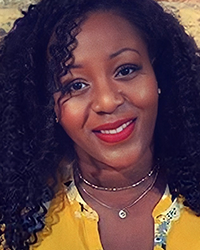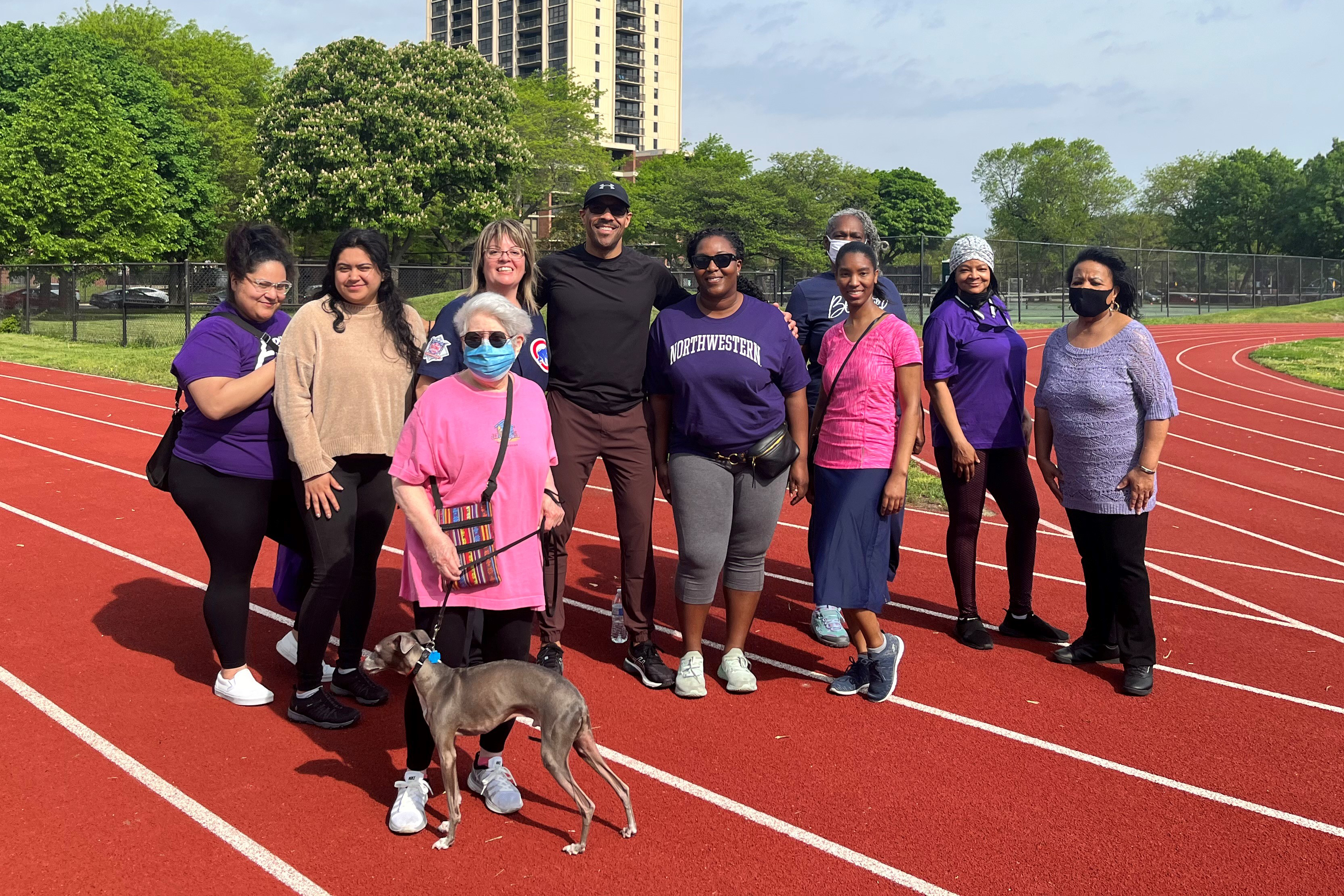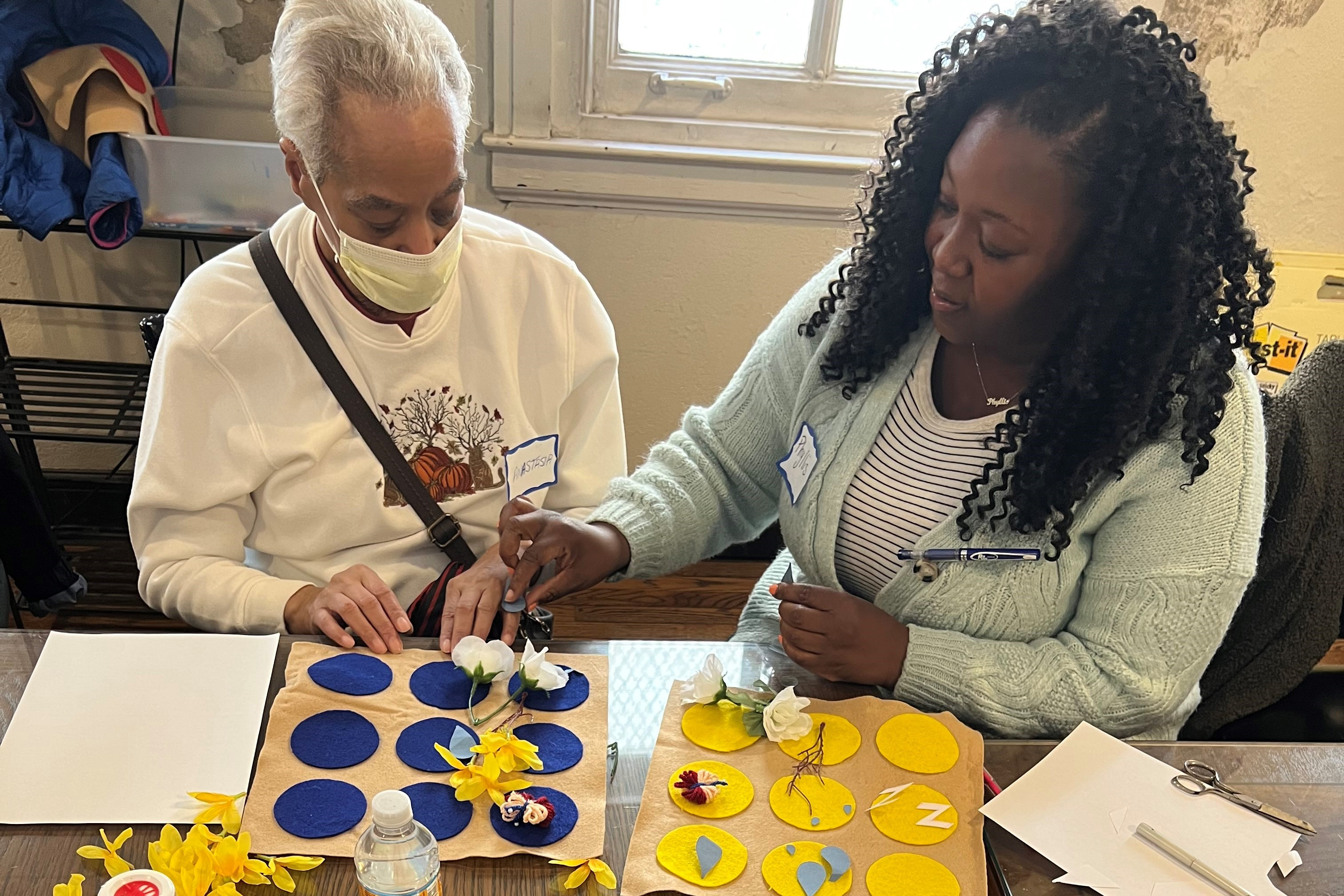Q&A with Community Engagement Coordinator Phyllis Timpo
Written by Yuliya Klochan
 Phyllis Timpo is the Community Engagement Coordinator for the Mesulam Center. She joined the center in March of this year to expand, strengthen, and coordinate a robust community engagement strategy for the Mesulam Center while serving the Center’s mission and that of our community partners. Prior to joining the Mesulam Center, she conducted research in community psychology and worked for civic engagement agencies. Today, she guides the center’s Underrepresented Group Recruitment and Retention Task Force to build and strengthen partnerships in nearby neighborhoods.
Phyllis Timpo is the Community Engagement Coordinator for the Mesulam Center. She joined the center in March of this year to expand, strengthen, and coordinate a robust community engagement strategy for the Mesulam Center while serving the Center’s mission and that of our community partners. Prior to joining the Mesulam Center, she conducted research in community psychology and worked for civic engagement agencies. Today, she guides the center’s Underrepresented Group Recruitment and Retention Task Force to build and strengthen partnerships in nearby neighborhoods.
What is your education and work history?
I went to the University of Maryland-College Park for undergrad, with a major in psychology, a minor in Black women's studies and a civic engagement capstone. After undergrad, I worked at a community psychology research lab in Chicago at DePaul University, at the Center for Community Research. That really exposed me to the field of community psychology, which looks at the way people affect their environment and the way their environment affects people.
I went on to get a master's degree in psychology in public interest at North Carolina State University. I did my master's thesis on how the environment and the neighborhood in which older African American adults live affects their memory and cognitive scores.
After that, I worked at public participation agencies in civic engagement, for the purposes of facilitating community involvement in different projects. Now I feel happy to be at the Mesulam Center to tie my love for research with community engagement and advocacy.

Phyllis with participants at the 1st district walking club event. This South Loop group gathers on the 2nd Friday of the month to walk and build community at Dunbar Park.
What does your role entail?
My role entails guiding the Underrepresented Group Recruitment and Retention Task Force with Drs. Morhardt and Rogalski and Brittanie Muse. The task force works to increase participation of underrepresented groups in research through bidirectional community partnerships. The development of trusting relationships and being a trustworthy source to communities with whom we partner is essential to our Center’s work. It is important that we give back to communities in meaningful ways, and not only ask for their participation in our research.
Our major focus at this time is with Black and African American communities. Due to the extensive history of health inequities, injustice and mistrust—a lot of Black people are very hesitant to join research studies. Hopefully, through developing community partnerships and trusting relationships we can share the importance of creating more diverse research to allow for meaningful results that benefit more than one particular group.
Why was your role created?
The National Institute of Aging (NIA) has increased funding for the science of recruitment and the recruitment of diverse populations into research. It is through our scientific projects, funded in part by the NIA, that allowed for the creation of my position. While the Mesulam Center has a history of long-standing community partners, we can now expand these collaborations.

Phyllis and a participant at the South Loop Village Memory Café working on an arts and crafts activity.
What have been some of your main accomplishments since you joined the Mesulam Center in late March?
Since I've been here, I've been able to broaden our engagement efforts into more communities. I created a stakeholder engagement map which gives us a visual representation to guide our research deployment to know where to put our resources. Our focus is to build strong collaborations with a few communities that will translate into developing relationships, spreading awareness, and for more African Americans to become involved in our research studies and clinical trials.
Specifically, we are working to develop strong relationships with organizations who serve the Bronzeville community. With the coming of Northwestern Medicine’s Bronzeville location, it is an opportunity to establish ourselves in Bronzeville prior to the hospital breaking ground.
What are some long-term goals for both you and the center?
I really want to develop a strong cohort of Black research participants who are excited and enthusiastic about our research. I'm excited to develop strong partnerships and community relationships. I’d like the Mesulam Center to be known as a resource for Black and Brown communities who are aging well or impacted by neurodegenerative diseases.